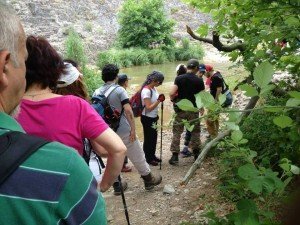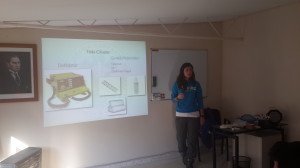MEDAK Thanks to it’s members who cover a very wide spectrum; including Doctors, Mountain Climbers, EMTs, Surgery Technichians, Surgery Nurses, Emergency Nurses, Clinical Psychologist, Ambulance Crew, Vet., First Aid Trainers and Trainer Trainers, Ham Radio Operators, Firefighters and Field Experienced Med Students; Medak has managed to amass a deep well of experience and utilize it to create training programs for educating volunteers (of both Medak and others) in accordance with the international standards and organize teams of volunteers for the unexpected.
Our training program is consistent with the procedures of the following organizations;
- U.S. Department of Homeland Security Federal Emergency Management Agency (FEMA)
- The National Urban Search and Rescue (US&R) Response System
- International Search and Rescue Advisory Group (INSARAG)
- City Disaster and Emergency Management (AFAD)
- National Medical Response Units (UMKE)
Our Training program uses the materials compiled by these organizations and adapts it to the specifics of the local conditions and the proficiency levels of the volunteers under the following 7 categories;
- General Disaster Basics
- Psycho-Social Situation Trainings
- Technical Trainings
- Medical Intervention Trainings
- Applied Trainings
- Group Trainings
- Advanced Specialization Trainings
These 7 categories contain 66 seperate lessons that each focus on specific topics that, as a whole teaches our members how to operate, live and stay safe in the field conditions as well as the international standards, adjusted and specialized for the local conditions.
MEDAK TRAINING PROGRAM
| A | GENERAL DISASTER MODULE |
| 1 | Public Health Issues and Sanitation During Post-Disaster Conditions |
| 2 | Basics of Disaster and Civil Disorders and Basics of Operating in and under Rubble |
| 3 | Turkish Disaster ve Crisis Management System |
| 4 | Disaster Command & Coordination |
| 5 | Disaster and Post Disaster Health Concerns |
| 6 | Safety During Disasters |
| 7 | International Danger and Warning Signs |
| 8 | Crisis and Flaspoint Management and Locale Safety |
| B | PSYCHOSOCIAL CONDITION TRAINING MODULE |
| 9 | Ethical and Cultural Concerns in the Field |
| 10 | Disaster Psychology Training |
| 11 | Stress and Conflict Management Training |
| 12 | Communication Difficulties and Possible Solutions |
| C | TECHNICAL TRAINING MODULE |
| 13 | Technical Gear Familiarization |
| 14 | Wireless Communications During Disasters |
| 15 | Basics of Walking and Trekking |
| 16 | Food under Field Conditions |
| 17 | Camping Principles |
| 18 | Basic Wilderness and Rubble Survival Training |
| 19 | Meteorology and Weather Forecasting |
| 20 | Map Reading and Orienteering |
| 21 | GPS |
| 22 | Knots Used in Mounteneering and SAR |
| 23 | Cardio and Conditioning Basics |
| 24 | Basic Rockclimbing |
| 25 | Basic Firefighting |
| D | MEDICAL INTERVENTION MODULE |
| 26 | Medical Gear Familiarization |
| 27 | Multiple Patient Incidents |
| 28 | Working Around and In/Under Caved In Buildings |
| 29 | Crush Syndrome |
| 30 | Traffic Accidents |
| 31 | Triage |
| 32 | Patient Immobilization, Strechers and Carrying Techniques |
| 33 | Basic ve İleri Life Support Training |
| 34 | Multiple Traumva Patients |
| E | FIELD EXERCISE MODULE |
| 35 | Summer and Winter Camping |
| 36 | Survival During Disasters and Other Circumstances |
| 37 | Orienteering |
| 38 | Patient Immobilization with Alternative Methods |
| 39 | Basic and Advanced Rockclimbing |
| 40 | Basic Camping and Mounteneering, Summer |
| 41 | Basic Camping and Mounteneering, Winter |
| F | GROUP TRAINING MODULE |
| 42 | Basic First Aid Certification Programme |
| 43 | Instructor Training |
| 44 | First Aid Instructor Certification Programme |
| G | ADVANCED SPECIALIZATIONS MODULE |
| 45 | CPR |
| 46 | Pelvis Anatomy and Breaks |
| 47 | Suture |
| 48 | Pneumothorax and Emergency Response |
| 49 | Pediatric Resuscitation |
| 50 | Defibrillation |
| 51 | Cardiac Anatomy and Physiology |
| 52 | Malnutrition |
| 53 | Airway |
| 54 | Pediatric Emergencies |
| 55 | Breathing Issues |
| 56 | Transport Incubators |
| 57 | Emergency Oxygen |
| 58 | Ambulance Gear |
| 59 | Abdominal Traumva |
| 60 | Chest Problems and Heart Attacks |
| 61 | Spiral Traumvas |
| 62 | Amputation |
| 63 | Intraosseous infusion |
| 64 | Intraosseöz Vascular Access |
| 65 | Emergency Sedation |
| 66 | Shock |
| 67 | Communication |
| 65 | Security During Disaster and Other Extraordinary Situadions |
| 66 | Body Language |




